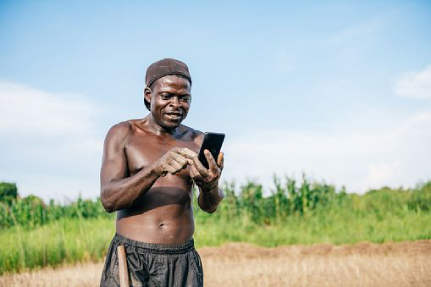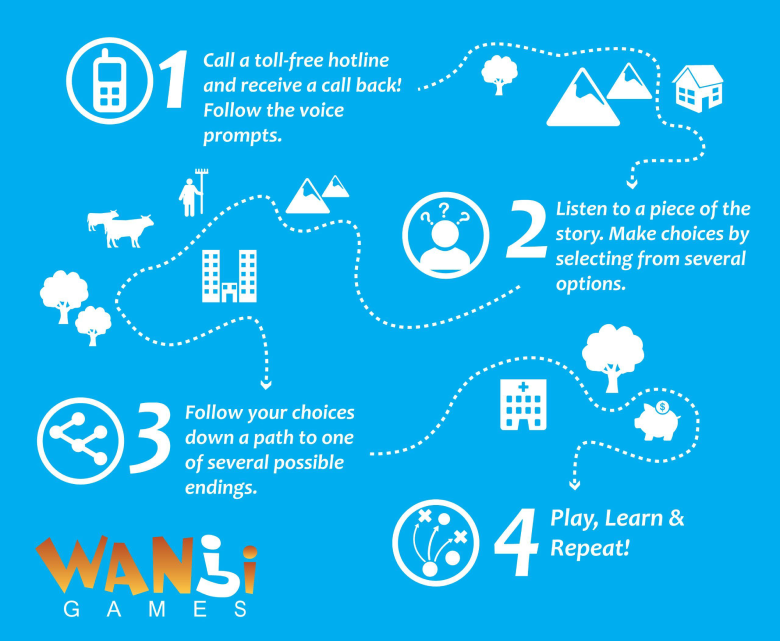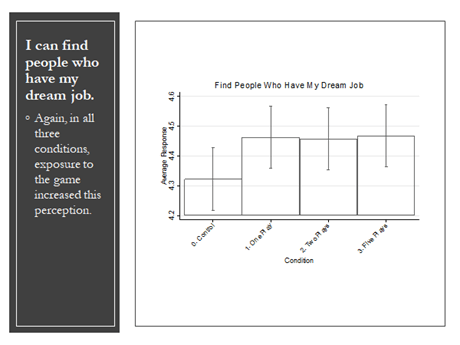Every day, millions of people play games on different platforms. Organizations seeking to meet the needs of remote, low-resource communities can leverage gaming to reach hundreds of millions of people and achieve a wide range of development project goals.
Both academic research and real-world results bear out the effectiveness of presenting educational messages through games. Users show an increase in knowledge acquisition and brand recognition and, crucially, changes in how they plan to act.
In Madagascar alone, 25 percent of farmers who played the game about adapting to climate change registered to receive more information on climate insurance, which amounted to 50,000 farmers. 
An interactive mobile phone game that allows players to choose their own adventure changed the lives of people living in isolated communities in Uganda by providing them with timely health, sexual and financial information.
The COVID-19 version of the games effectively reached 2.7 million people in 11 countries in 2020.
Inspired by choose-your-own-adventure books, Wanji games let players make decisions regarding fictional characters using spoken, audio-delivered content via a basic mobile phone. This entertainment education powers learning across a range of subjects.
Peripheral Vision International (PVI) created Wanji Games with technical support from Viamo. Featuring custom narratives, these edutainment games allow listeners to role play scenarios ranging from gender-based violence to financial management. Players gain a deeper understanding of a topic by exploring different endings of a story. Wanji Games can be played freely on the Viamo Platform.
Wanji Games was first piloted in Uganda and it helped farmers think through managing their income and savings. In response to content on agricultural practices delivered in local languages, participants acquired 16 percent more unique knowledge on topics like farming best practices, climate smart agriculture, and financial literacy. More than 12 percent expressed intentions to use improved harvest practices.
Since then, Wanji Games has been rolled out to 21 countries across three continents, from the Bahamas to Pakistan, reaching 4.6 million people.
Leading organizations such as GIZ, BBC Media Action, UN Agencies and the British Council have all used Wanji Games. PVI and Viamo have co-developed more than 40 games so far covering topics such as human rights, reproductive health and nutrition.
Recently, Wanji Games has been providing on-demand financial education to beneficiaries of the Association of Microfinance Institutions (AMFIs) in rural and semi-urban areas of Kenya in order to increase financial literacy. More than 4,500 calls were recorded during the six-month project, which was funded by the German Sparkassenstiftung of Eastern Africa.

Wanji Games: How gamified narratives delivered through basic mobile phones work. (via PVI)
HOW IT WORKS
Wanji Games works in a very simple and intuitive way. Using the Viamo Platform, players dial a toll-free short code number and receive a callback. The player is then presented with a fictional scenario in which they get to choose how the main character acts, to move the story forward. The set-up is inspired by the choose-your-adventure novels where readers followed different narratives depending on what choices they made.
Following voice prompts, Wanji Games players use the keys on their phone to select different possible actions for their character. Choices they make can earn them points, lose points or result in ending the game. Users can repeat the game to improve their character’s outcome, all the time picking up valuable information about the topic, whether that is safe sex, agricultural techniques or job hunting.
Wanji Games can be used as an add-on to Viamo content bundles or as a standalone product, depending on the audiences’ needs. In a content bundle, Wanji Games can integrate with, link to and enhance other content. A variety of games and in-game levels can be added to achieve learning objectives.
CROSS-SECTORAL IMPACT
The beauty of using edutainment is that it is interactive, which increases user engagement and ultimately helps businesses and organizations reach new and diverse audiences effectively. Wanji Games is low-cost and scalable with no access limitations. It can also supplement other interventions, such as formal training, and can easily be adapted to any topic.
Because it is used on an individual basis, it is an appropriate medium for discussing sensitive topics. For example, a recipient can receive information on a subject such as HIV prevention that the caller would prefer to receive privately rather than in a communal setting.
The accessibility features and proven impact of Wanji Games means that it can reach digitally disconnected users with important messages. In fact, Wanji Games was awarded the MIT Solve prize in 2017 as a solution to global challenges in Youth, Skills and Workforce of the Future.

The sense of being involved in the main character’s decision-making helps players to identify with that character and become invested in the character’s goals. The storytelling element makes it interesting and helps users to retain the information better, and the scoring for different choices adds an element of competition.
A recent study in Cambodia, reported in the prestigious International Journal of Communication, also confirmed that the interactive element of Wanji games led to changes in users’ intended behavior. Findings on the impact of a Wanji Game about youth employment indicate that engaging even once with Wanji content can increase job-seeking confidence and planning intentions.




